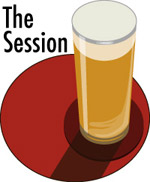MONDAY BEER & WINE LINKS, MUSING 10.02.17
Administrative note: There will be no more weekly links here until November. As in July, because of travel there simply won’t be time to collect and organize them.
– Hop harvest is not over everywhere yet, and even after the last bines are stripped of cones there is plenty to be done on farms and in processing plants. So more like the end of a chapter than the whole story.
– Dave Berg at August Schell Co. digs deep into the history of brewing with adjuncts, inspiring Brian Alberts to expand the conversation. If you want to know even more about the history and why American brewers came to use adjuncts then I recommend the third chapter of Brewing Local (full disclosure – I wrote the book). How that history relates to what we call traditional is at the center of both of these posts.
– And defining what is traditional can lead to war.
– Wait. You can buy a brewery in Denver for $225,000? Could it double as an Airbnb? Appears a several Colorado breweries are available for the right price.
– On the other hand, you can open one in New Orleans with $80,000. Of course, “We have to grow, because we’re killing ourselves,” says Courtyard Brewery founder Scott Wood. “There’s just too much work for how much money we make.”
– How Gose got salty. Not exactly definitive, but a starting place.
– And the question I ask myself every day (and should address here more often). What does it mean to “drink locally”?
WINE/BEER
– Can the wine industry replicate the success breweries have had getting consumers to line up for special releases?
– The Evolution of American Oak.
FROM TWITTER
 Host Eoghan Walsh has announced the topic for The Session #129 is Missing Local Beer Styles.
Host Eoghan Walsh has announced the topic for The Session #129 is Missing Local Beer Styles.